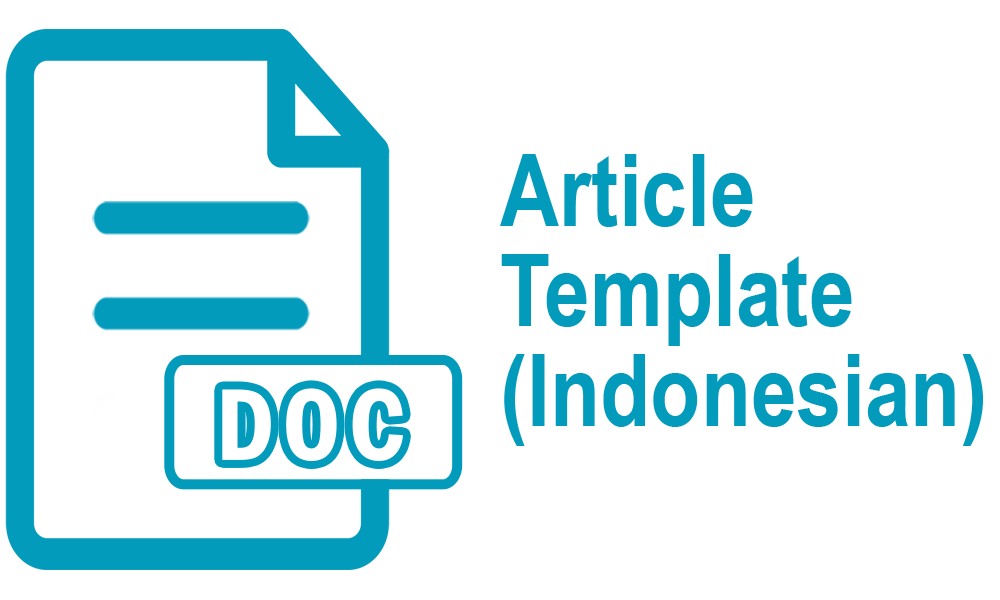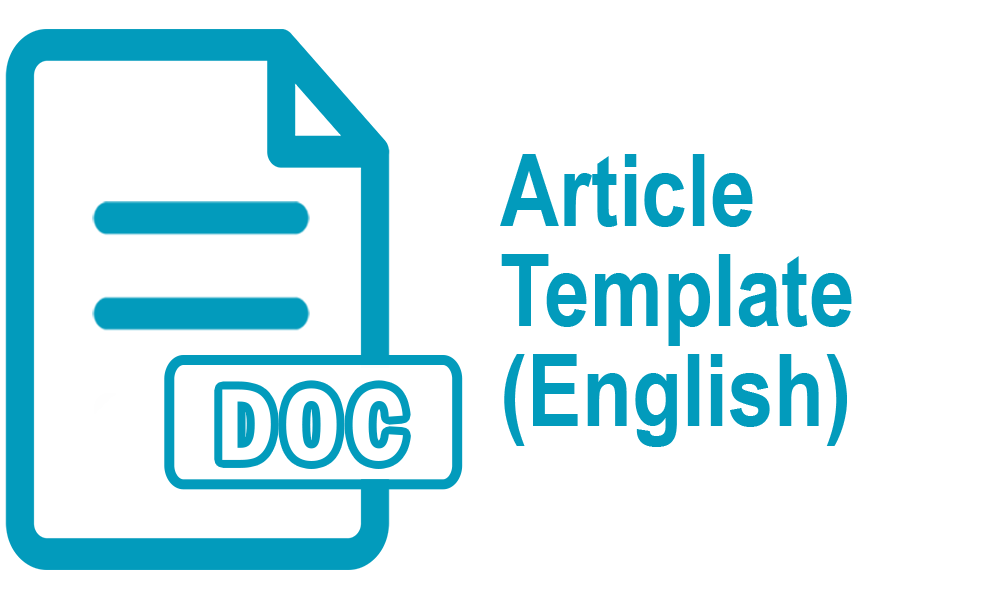Pembelajaran Sosial Emosional: Menghadirkan Pendidikan yang Berpihak Kepada Siswa Melalui Kurikulum Merdeka
Abstract
Pembelajaran sosial emosional penting untuk diterapkan di sekolah khususnya pada Kurikulum Merdeka. Tujuan penelitian ini untuk menganalisis penerapan pembelajaran sosial emosional dalam pembelajaran Bahasa Indonesia khususnya pada materi teks fiksi dan non fiksi. Pembelajaran sosial emosional menjadi penting karena untuk menanamkan kontrol diri kepada siswa khususnya ketika berinteraksi dengan orang lain. Penelitian ini merupakan penelitian kualitatif dengan pendekatan studi kasus. Teknik pengumpulan data yang digunakan yakni observasi dan dokumentasi. Instrumen pengumpulan data menggunakan lembar catatan lapangan dan smartphone. Teknik sampling yang digunakan yakni teknik sampling jenuh dengan melibatkan total 28 siswa kelas VII G SMPN 40 Surabaya. Hasil penelitian menunjukkan bahwa penerapan pembelajaran sosial emosional di kelas VII G SMPN 40 Surabaya memiliki dampak positif yang muncul, khususnya pada lima komponen pembelajaran sosial. Berdasarkan hasil penelitian dapat disimpulkan bahwa penerapan pembelajaran sosial emosional di VII G SMPN 40 Surabaya mampu memunculkan lima komponen serta berdampak positif pada perilaku dan hasil belajar siswa.
Full Text:
PDFReferences
Adiba, L. and Latip, A. (2021). Social emotional learning program for build responsible character of students in elementary school. JMIE (Journal of Madrasah Ibtidaiyah Education), 5(1), 67. https://doi.org/10.32934/jmie.v5i1.228
Astuti, B., Purwanta, E., Lestari, R., & Bhakti, C. (2021). Mobile learning design and development to develop student decision making skills in social emotional learning process. Jurnal Konseling Dan Pendidikan, 9(1), 82. https://doi.org/10.29210/158100
Benner, G. J., Strycker, L. A., Pennefather, J., & Smith, J. L. M. (2022). Improving Literacy for Students with Emotional and Behavioral Disorders: An Innovative Approach. Teacher Education and Special Education, 45(4), 331-348. https://doi.org/10.1177/08884064221079
Czauderna, A. (2023). Informal social-emotional learning in gaming affinity spaces: evidence from a reddit discussion thread on elden ring. Simulation & Gaming, 55(1), 30-50. https://doi.org/10.1177/10468781231209697
Chance, E., Villares, E., Brigman, G., & Mariani, M. (2023). The Effects of the Ready for Success Classroom Program on Third-Grade Students’ Social/Emotional Skills and Competence. Professional School Counseling, 27(1). https://doi.org/10.1177/2156759X2311
Collaborative for Academic, Social, and Emotional Learning (CASEL). (2022). What is social and emotional learning. Diakses dari: https://schoolguide.casel.org/what-is-sel/what-is-sel/
Collie, R., Shapka, J., & Perry, N. (2012). School climate and social–emotional learning: predicting teacher stress, job satisfaction, and teaching efficacy. Journal of Educational Psychology, 104(4), 1189-1204. https://doi.org/10.1037/a0029356
Collie, R., Shapka, J., Perry, N., & Martin, A. (2015). Teachers' beliefs about social-emotional learning: identifying teacher profiles and their relations with job stress and satisfaction. Learning and Instruction, 39, 148-157. https://doi.org/10.1016/j.learninstruc.2015.06.002
Domitrovich, C., Durlak, J., Staley, K., & Weissberg, R. (2017). Social‐emotional competence: an essential factor for promoting positive adjustment and reducing risk in school children. Child Development, 88(2), 408-416. https://doi.org/10.1111/cdev.12739
Durlak, J., Weissberg, R., Dymnicki, A., Taylor, R., & Schellinger, K. (2011). The impact of enhancing students’ social and emotional learning: a meta‐analysis of school‐based universal interventions. Child Development, 82(1), 405-432. https://doi.org/10.1111/j.1467-8624.2010.01564.x
Fettig, A., Cook, A., Morizio, L., Gould, K., & Brodsky, L. (2018). Using dialogic reading strategies to promote social-emotional skills for young students: an exploratory case study in an after-school program. Journal of Early Childhood Research, 16(4), 436-448. https://doi.org/10.1177/1476718x18804848
Greenberg, M. T., Weissberg, R. P., O'Brien, M. U., Zins, J. E., Fredericks, L., Resnik, H., & Elias, M. J. (2003). Enhancing school-based prevention and youth development through coordinated social, emotional, and academic learning. American Psychologist, 58(6-7), 466–474. https://doi.org/10.1037/0003-066X.58.6-7.466
Gresham, F. (2014). Evidence-based social skills interventions for students at risk for ebd. Remedial and Special Education, 36(2), 100-104. https://doi.org/10.1177/07419325145561
Guerin, T. (2014). Relationships matter: the role for social-emotional learning in an interprofessional global health education. The Journal of Law Medicine & Ethics, 42(S2), 38-44. https://doi.org/10.1111/jlme.12186
Hachem, M., Gorgun, G., Chu, M., & Bulut, O. (2022). Social and emotional variables as predictors of students’ perceived cognitive competence and academic performance. Canadian Journal of School Psychology, 37(4), 362-384. https://doi.org/10.1177/0829573522
Herwanti, K., Nugrohadi, S., Mujiono, Baatarkhuu, K., Nugraha, S. C. P., & Novita, M. (2022). Importance of Data-based Planning in Kurikulum Merdeka Implementation. KnE Social Sciences, 7(19), 279–288. https://doi.org/10.18502/kss.v7i19.12448
Hoffmann, J. D., Brackett, M. A., Bailey, C. S., & Willner, C. J. (2020). Teaching emotion regulation in schools: Translating research into practice with the RULER approach to social and emotional learning. Emotion, 20(1), 105–109. https://doi.org/10.1037/emo000
Iqbal, J., Asghar, M., Ashraf, M., & Xie, Y. (2022). The impacts of emotional intelligence on students’ study habits in blended learning environments: the mediating role of cognitive engagement during covid-19. Behavioral Sciences, 12(1), 14. https://doi.org/10.3390/bs12010014
Ledezma, A., Massar, K., & Kok, G. (2020). Social emotional learning and the promotion of equal personal relationships among adolescents in panama: a study protocol. Health Promotion International, 36(3), 741-752. https://doi.org/10.1093/heapro/daaa114
Ljubetić, M. and Maglica, T. (2020). Social and emotional learning in education and care policy in croatia. International Journal of Evaluation and Research in Education (IJERE), 9(3), 650. https://doi.org/10.11591/ijere.v9i3.20495
Mahoney, J. L., Weissberg, R. P., Greenberg, M. T., Dusenbury, L., Jagers, R. J., Niemi, K., Schlinger, M., Schlund, J., Shriver, T. P., VanAusdal, K., & Yoder, N. (2021). Systemic social and emotional learning: Promoting educational success for all preschool to high school students. American Psychologist, 76(7), 1128–1142. https://doi.org/10.1037/amp0000701
Meyers, D., Domitrovich, C., Dissi, R., Trejo, J., & Greenberg, M. (2019). Supporting systemic social and emotional learning with a schoolwide implementation model. Evaluation and Program Planning, 73, 53-61. https://doi.org/10.1016/j.evalprogplan.2018.11.005
Mishra, P. and Koehler, M. (2006). Technological pedagogical content knowledge: a framework for teacher knowledge. Teachers College Record, 108(6), 1017-1054. https://doi.org/10.1111/j.1467-9620.2006.00684.x
Moningka, C. (2022). Buku Ajar Mata Kuliah Inti Pembelajaran Sosial Emosional. Jakarta: Direktorat Jenderal Guru dan Tenaga Kependidikan.
Nathanson, L., Rivers, S., Flynn, L., & Brackett, M. (2016). Creating emotionally intelligent schools with ruler. Emotion Review, 8(4), 305-310. https://doi.org/10.1177/175407391665
Niu, S., Niemi, H., & Furman, B. (2022). Supporting k-12 students to learn social-emotional and self-management skills for their sustainable growth with the solution-focused kids’skills method. Sustainability, 14(13), 7947. https://doi.org/10.3390/su14137947
Ogurlu, U., Sevgi-Yalın, H., & Yavuz-Birben, F. (2016). The relationship between social–emotional learning ability and perceived social support in gifted students. Gifted Education International, 34(1), 76-95. https://doi.org/10.1177/0261429416657221
Okur, S., Danaci, F., & Totan, T. (2022). The moderation role of social and emotional learning on the effect of school engagement on motivation. Humanistic Perspective, 4(2), 334-352. https://doi.org/10.47793/hp.1113429
Oliveira, S., Roberto, M., Pereira, N., Marques-Pinto, A., & Simão, A. (2021). Impacts of social and emotional learning interventions for teachers on teachers' outcomes: a systematic review with meta-analysis. Frontiers in Psychology, 12. https://doi.org/10.3389/fpsyg.2021.
Paolini, A. (2019). Social emotional learning: role of the school counselor in promoting college and career readiness. Anatolian Journal of Education, 4(1). https://doi.org/10.29333/aje.20
411a
Peterson, S. M., Valk, C., Baker, A. C., Brugger, L., & Hightower, A. D. (2010). “We’re Not Just Interested in the Work”: Social and Emotional Aspects of Early Educator Mentoring Relationships. Mentoring & Tutoring: Partnership in Learning, 18(2), 155–175. https://doi.org/10.1080/13611261003678895
Rembush, E., Heman, P., Klietz, E., & Leong, J. (2022). Peacemaking: conflict resolution using cool clues for elementary students. Spectrum, (8). https://doi.org/10.29173/spectrum133
Riley, A. (2019). Social and emotional learning in practice: a resource review. Journal of Youth Development, 14(3), 212-216. https://doi.org/10.5195/jyd.2019.850
Saito, L. (2020). The complexity of generational status and ethnic identity of japanese americans. The Family Journal, 29(2), 213-219. https://doi.org/10.1177/10664807209775
Schiepe-Tiska, A., Dzhaparkulova, A., & Ziernwald, L. (2021). A mixed-methods approach to investigating social and emotional learning at schools: teachers’ familiarity, beliefs, training, and perceived school culture. Frontiers in Psychology, 12(518634), 1-16. https://doi.org/10.3389/fpsyg.2021.518634
Schonert-Reichl, K. A., Oberle, E., Lawlor, M. S., Abbott, D., Thomson, K., Oberlander, T. F., & Diamond, A. (2015). Enhancing cognitive and social–emotional development through a simple-to-administer mindfulness-based school program for elementary school children: A randomized controlled trial. Developmental Psychology, 51(1), 52–66. https://doi.org/10.1037/a0038454
Shiller, J. and DeShields, I. (2022). Meet students in the middle: a culturally responsive, near-peer literacy program. Phi Delta Kappan, 104(2), 17-21. https://doi.org/10.1177/00317217221130627
Shrestha, R., Shrestha, N., Koju, S., & Tako, R. (2021). Association between emotional intelligence and academic performance among students in gandaki medical college, pokhara. Journal of Gandaki Medical College-Nepal, 14(1), 29-32. https://doi.org/10.3126/jgmcn.v14i1.32622
Sollom, M. (2021). A quasi-experimental study on social emotional learning and primary prevention. Journal of Educational and Developmental Psychology, 11(2), 1. https://doi.org/10.5539/jedp.v11n2p1
Sorbet, S. and Notar, C. (2022). Positive classroom design through social-emotional learning: building a community of learners. American Journal of Education and Learning, 7(1), 1-13. https://doi.org/10.55284/ajel.v7i1.604
Sospeter, M., Shavega, T., & Mnyanyi, C. (2021). Social emotional model for coping with learning among adolescent secondary school students. Global Journal of Educational Research, 19(2), 179-191. https://doi.org/10.4314/gjedr.v19i2.6
Sugiyono. (2019). Metodelogi Penelitian Kuantitatif dan Kualitatif dan R&D. Bandung: Alfabeta.
Taylor, R., Oberle, E., Durlak, J., & Weissberg, R. (2017). Promoting positive youth development through school‐based social and emotional learning interventions: a meta‐analysis of follow‐up effects. Child Development, 88(4), 1156-1171. https://doi.org/10.1111/cdev.12864
Thaintheerasombat, S. and Chookhampaeng, C. (2022). The development of a self-awareness skill for high school students with the process of social and emotional learning. Journal of Educational Issues, 8(2), 741. https://doi.org/10.5296/jei.v8i2.20395
Turki, F., Jdaitawi, M., & Sheta, H. (2017). Fostering positive adjustment behaviour: social connectedness, achievement motivation and emotional-social learning among male and female university students. Active Learning in Higher Education, 19(2), 145-158. https://doi.org/10.1177/1469787417731202
Ülvay, G. and Özkul, A. (2018). Social-emotional learning competencies scale of secondary school students. Eurasia Journal of Mathematics Science and Technology Education, 14(4). https://doi.org/10.29333/ejmste/82938
Wang, Y., Yang, Z., Zhang, Y., Wang, F., Liu, T., & Tao, X. (2019). The effect of social-emotional competency on child development in western china. Frontiers in Psychology, 10(1282), 1-10. https://doi.org/10.3389/fpsyg.2019.01282
Weissberg, R. and Cascarino, J. (2013). Academic learning + social-emotional learning = national priority. Phi Delta Kappan, 95(2), 8-13. https://doi.org/10.1177/00317217130950
Xie, S., Wu, D., & Li, H. (2022). The relationship between chinese teachers’ emotional labor, teaching efficacy, and young children’s social-emotional development and learning. Sustainability, 14(4), 2205. https://doi.org/10.3390/su14042205
Yaari, M., Sheehan, J., & Oberklaid, F. (2019). Early minds: a pilot randomised controlled trial of a mindfulness program in early learning centres. Pilot and Feasibility Studies, 5(1). https://doi.org/10.1186/s40814-019-0463-0
Zieher, A. K., Cipriano, C., Meyer, J. L., & Strambler, M. J. (2021). Educators’ implementation and use of social and emotional learning early in the COVID-19 pandemic. School Psychology, 36(5), 388–397. https://doi.org/10.1037/spq0000461
Zilva, D. (2023). The role of social and emotional learning in student success. Journal of Education Review Provision, 3(1), 13-17. https://doi.org/10.55885/jerp.v3i1.152
Žilinskienė, I. (2022). Insights from empirical results on robotics in early childhood education: lithuanian case. TEM Journal, 11(03), 1103-1107. https://doi.org/10.18421/tem113-15
DOI: http://dx.doi.org/10.30872/jbssb.v8i4.15224
Refbacks
- There are currently no refbacks.
Copyright (c) 2024 Indana Zulfa Majidah
Editorial address:
Fakultas Ilmu Budaya, Universitas Mulawarman
Jl. Ki Hajar Dewantara, Gunung Kelua, Kec. Samarinda Ulu, Kota Samarinda, Kalimantan Timur, Indonesia 75123
Email: jurnalilmubudaya.fibunmul@gmail.com
Website: http://e-journals.unmul.ac.id/index.php/JBSSB
Ilmu Budaya: Jurnal Bahasa, Sastra, Seni, dan Budaya is licensed under a Creative Commons Attribution-ShareAlike 4.0 International License






